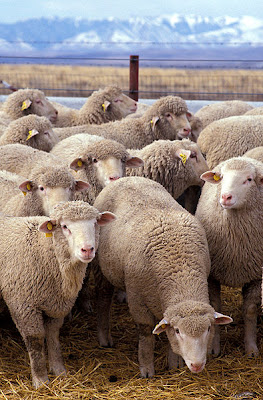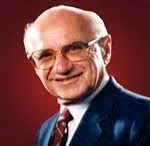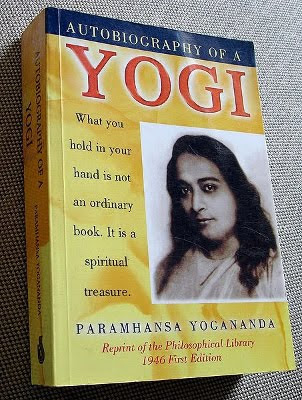This is shameless linkbaiting on my side. A recent troughleader post (We are not all Africans, black people are!) asserts that only black people can be truly African. I'll reserve judgement on whether this is true or not, but this post is such an easy target for a sadist like myself so I couldn't resist dishing out a few slaps on the wrist. What can I say? Give me a barrel of fish and a shotgun and I have a fun-filled afternoon.
I'll quote segments from the blog post in bold, and debunk them blow by blow:

A Neanderthal skull. Any species that had dentistry advanced enough to survive death for a couple of hundred thousand years is obviously superior to ours. Then again, our mammaries tend to be non-biodegradable so maybe we show potential.
Historical revisionism is generally a legitimate re-evaluation of existing understanding and knowledge of particular historical aspects in order to correct any distortions; but there are also those with deliberate motives to revise history in order to mislead or reflect them in favourable light.
Historical revisionism does not have a general status as either legitimate or illegitimate. Historians know that, as Winston Churchill once noted, victors are the writers of history. Revisionism is a term used to describe a process of historical speculation. In most cases, there is no objective means to determine which version of history is more accurate than another. The American Historical Association offers some illumination:
History is a continuing dialogue between the present and the past. Interpretations of the past are subject to change in response to new evidence, new questions asked of the evidence, new perspectives gained by the passage of time. There is no single, eternal, and immutable "truth" about past events and their meaning.
Historical revisionism is thus not a process that necessarily corrects distortions, it is the process of studying history and merely offers different viewpoints of an assumed history. History is a narrative, descriptive, humanist endeavour and should not be confused with science in the true sense of the word. History is not a quest for truth, but a quest for deeper understanding of human nature. It is largely the study of mythology, in the epic of evolution sense.
Historically, the term “African” never had any ambiguous meaning.
This is demonstrably false. The term Africa is considered to be a Latin term, given to Africa by Roman conquerors. One possible root of the word is aprica, which is Latin for sunny. Another possible root is Afer, which means of or related to Africa. During the time when Africa was baptised Africa by the Roman Empire, this term referred specifically to Carthage, or Phoenicia, in modern day Tunisia. The term Afri referred to several Semitic people who lived in the Northern parts of Africa during this time. Originally, then, the terms Africa and African have absolutely no bearing on black people, but referred to the Semitic natives of the African continent who dealt with the Roman Empire.
Historically, the term African is as ambiguous as it is today. It is thus a convenient blanket term for the Roman Empire to refer to that sunny continent, or a way to refer to the Semitic people who lived there.
The term originally did not describe a racial group or even a specific ethnic group. The term African merely described people of or related to Africa in some way.
This 'some way' is vague, as it originally referred to Semitic people who very much are Afro-Asiatic, depending on the historical revisionism you'd like to believe.
The fight against colonialism was to liberate Africans from the thuggery visited upon them by Europeans who had arrogated to themselves the power to rule with brute force and dominate vast territories of the African continent.
The history of slavery (or if Wikipedia is somehow a questionable source, try the BBC's History of Slavery), particularly in Nigeria, proves that thuggery was native to Africa long before European colonialism reared its head. In their case, European colonialism liberated the slaves and brought much more freedom to the populace than it discovered there. Colonialism is not the mainstay of the Caucasian race. Colonialism is very much native to Africa, as it is to the entire savage homo sapiens species since they obliterated the civilised Neanderthal species, historical revisionism besides.
Mbeki recognised and acknowledged that other cultures and the acquired knowledge of the history of various races had shaped his being and person as an African.
Before putting words in Thabo Mbeki's mouth, it is perhaps best to read the famous I am an African speech. Let Mbeki speak for himself:
I am formed of the migrants who left Europe to find a new home on our native land. Whatever their own actions, they remain still, part of me.
...
My mind and my knowledge of myself is formed by the victories that are the jewels in our African crown, the victories we earned from Isandhlwana to Khartoum, as Ethiopians and as the Ashanti of Ghana, as the Berbers of the desert.
We see thus that Mbeki very much includes any racial or ethnic group born in Africa - that is, native to Africa - as Africans, in much the same way that the original meaning of the word African means of or related to Africa (be it sunny skies or Semitic people, your choice).
Our historical revisionists who want to be reclassified as Africans and no longer as Europeans or white, tend to look north at Arab countries and claim, in their state of bewilderment, that Arabs are Africans, therefore, they too have the right to proclaim themselves African.
No white person who wants to be classified as African ever conflated the term African with being black. African and black are not synonyms and never were, given the ambiguity of both terms. The term African means of or related to Africa, while black may refer to a race or ethnic group with a dark complexion, sometimes with a Semitic genetic lineage like the Lemba.
It is thus a misconception that white people are trying to be black when they claim, like Thabo Mbeki did, that they too are African if they are of or related to Africa. The reason is obviously that African and black are two separate, ambiguous, emotionally loaded terms that means different things to different people.
Most white people in this debate claim that they are African purely because they are native born in Africa and nothing more.
Popular theory among whites has been that their ancient ancestors came from Africa. However, palaeontologists after an analysis of more than 5 000 ancient teeth, concluded that first Europeans were from Asia, not Africa.
The author does not provide any links to the palaeontology sources. What is claimed without evidence can be dismissed without evidence. Neverteless, the Smithsonian Institute does not seem to buy the idea that homo sapiens evolved in China.
No white person can either through birth or naturalisation assume an identity of African. African is not and has never been a national identity.
This simply does not make sense, unless one decouples the terms African and black. As a race, no white person can either through birth or naturalisation change races any more than any other person can socially construct their genetic heritage. However, one person born in Africa and of Africa is just as African as the next, precisely because the term African is not and has never been a national identity - or a specific racial or ethnic identity.
Once the penny drops that African and black race are not synonymous terms, it makes sense how one can be black but not African, and African but not black.
If this historical revisionism if to continue, soon whites would find the racial identity as African not enough, and proclaim themselves “black” and accuse those who refuse to recognise them as such to be racist and intolerant.
On the contrary, if one decouples the terms African and black with the aid of any dictionary, one realises that the two are not synonyms. Then it makes sense how one can be African regardless of ethnic or racial heritage, but not black. It also makes sense how one can be black but not African, as the people of Oceania and Australia with dark skins can be black but with no relation to Africa.
It would appear rather that the only historical revisionism that is racist and intolerant in this regard is on the side of those who would like to do a reverse pencil test to determine who is African and who is not (black or not).

















.jpg)






.jpg)





